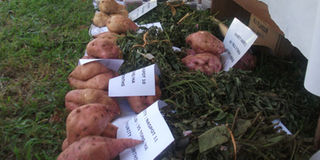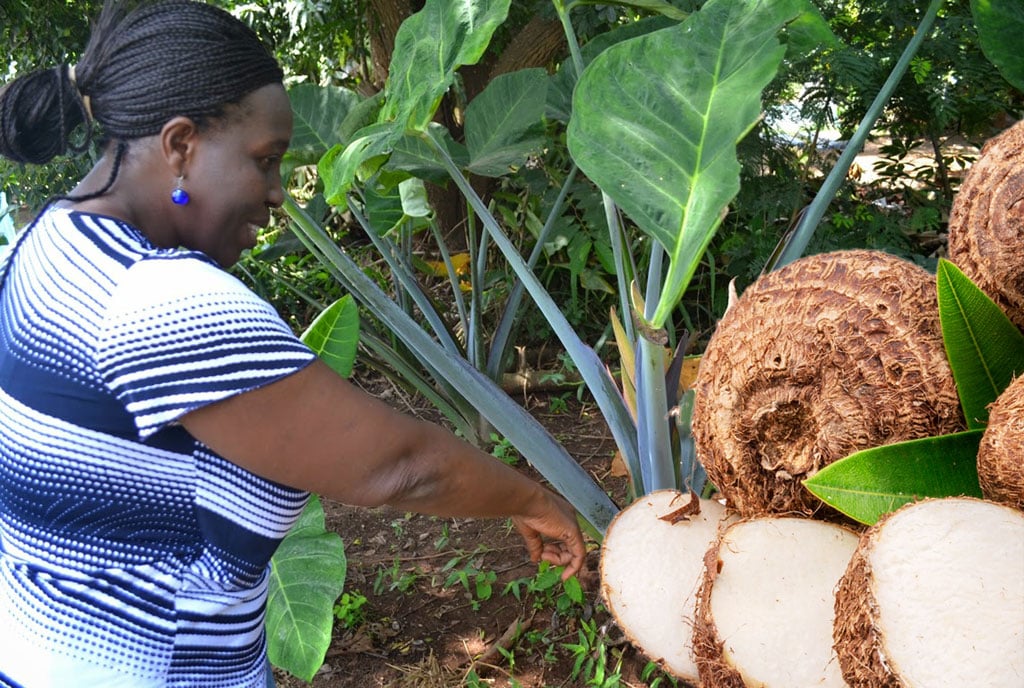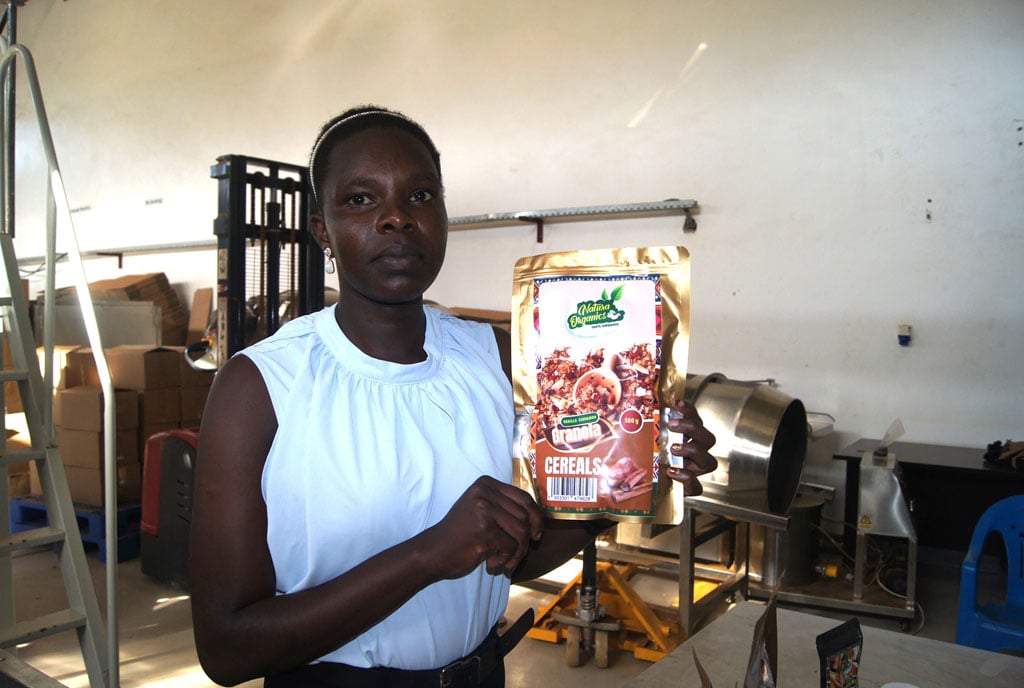Scientists release disease free sweet potato varieties

The different varieties of sweet potatoes that are being researched about at Nacrri. PHOTO BY LOMINDA AFREDRARU
Farmers who have specialised in growing Sweet Potatoes now have the advantage of planting disease free varieties some of which have been released by crop scientists from the National Crop Resources Research Institute (Nacrri) in Namulonge for further multiplication as well as planting. The Scientists specialised in conducting research in sweet potato species and have come up with varieties that are resistant to sweet potato pests and diseases as well as weevils. The research which is still ongoing is done using the conventional method, tissue culture, Biotechnology mechanism as well as maker assisted selection where the seedlings are selected using computerised mechanism for purposes of selecting the best seedling for breeding.
According to Mr Charles Niringiye, a sweet potato Agronomist at the Institute who is part of the research team, research on the various species of the crop has been going on for quite some time with the major aim of acquiring disease resistance as well as improving on varieties that contain vitamin A. He said his team either collects the indigenous various sweet potato species and crosses them to get resistance or crosses the indigenous varieties with those obtained from the agricultural potato centre based in Peru.
“We usually obtain local collections and keep them in the green house where the crossing of varieties is conducted. When we receive those varieties from Peru, we undergo the same process of crossing them with the indigenous ones. So far we have released 20 varieties between the year 1996 – 2010,” Mr Niringiye said. This research is an initiative of the Institute with its development partners from the North Caroline State University and Science Research Centre in Austria. In a fact sheet data prepared by the research team of Nacrri about the sweet potato research programme, it is stated that the programme is aimed at improving the food security and livelihoods of the rural families in Sub-Saharan Africa including Uganda.
According to this data, in Uganda sweet potato which is estimated with an annual production of 2.6 million metric tonnes production annually is the third most important crop consumed with the first and second being banana and cassava respectively. This research is aimed at developing weevil resistance, virus resistance, improved nutritional quality both in fresh and dry matter as well as improved agronomic traits for food and animal feed,” read part of the report. Some of the released varieties include, Kawogo, Tanzania, Naspot 1, Naspot 90, Kakamega and Ejumula which are gaining importance in the local market and in export trade especially United Kingdom and the Netherlands.
Some of the released varieties combine high dry matter of 30 per cent resistance to sweet potato virus and a disease called Alternaria blight. These varieties are also deployed in four districts in northern Uganda under a project called Dissemination of New Agricultural Technology in Africa (Donat) According to the researchers, sweet potato varieties are faced with a challenge of being infected by pests that render the crop unsuitable for consumption therefore the need for research.
The crop is mostly affected in the roots and efforts are underway to incorporate the pest compound into popular susceptible varieties for resistance against the pest. The team also developed an artificial diet from biological substances to be used as extracts on the African weevil. This diet allows investigations on effects of dosage on the sweet potato weevil to be conducted.




